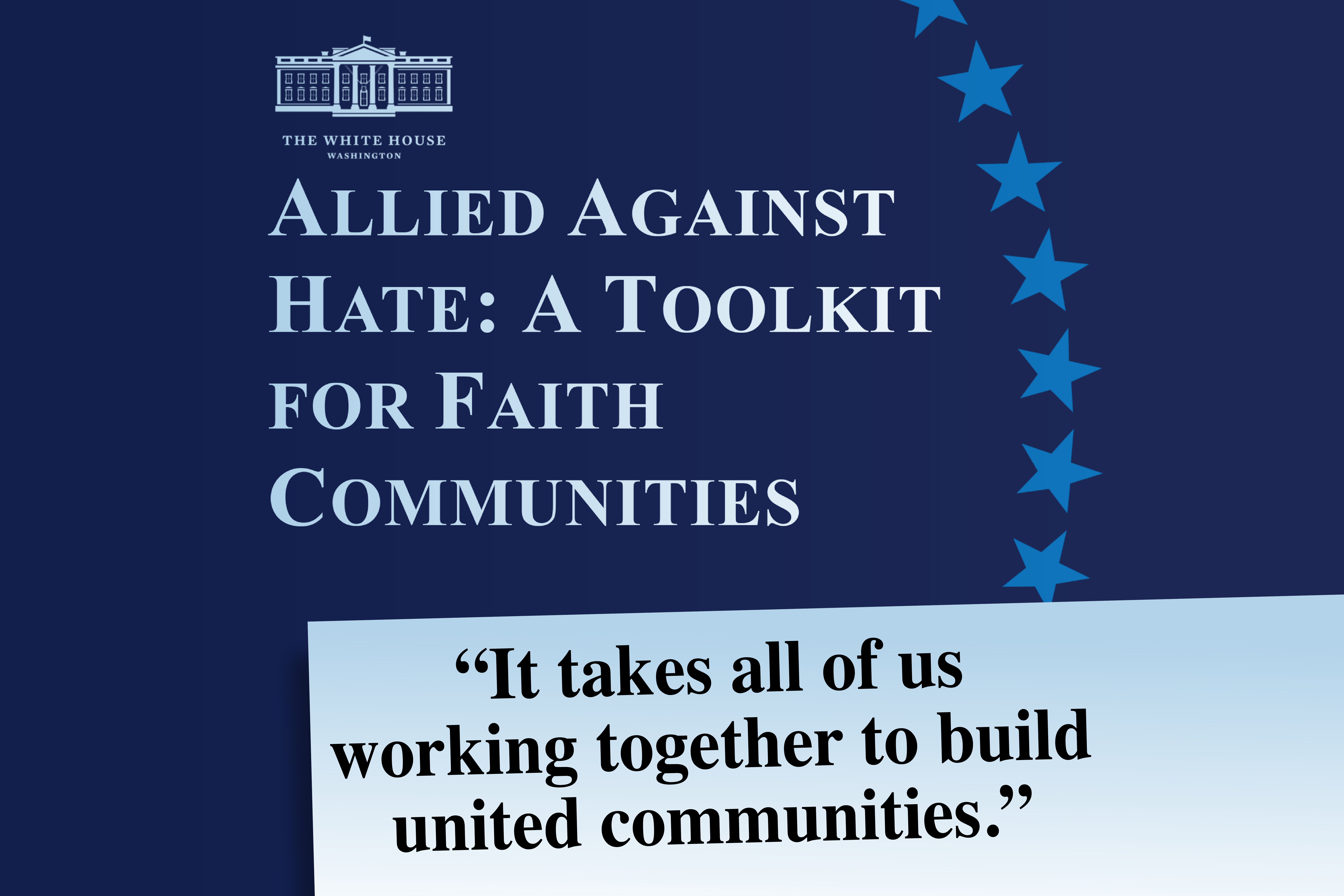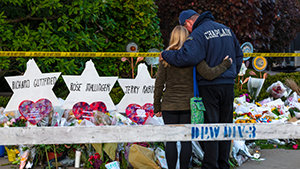
-
HOME
-
WHAT IS STANDOur Mission Our Values Our Help Contact
-
WHAT WE FIGHT FORReligious Freedom Religious Literacy Equality & Human Rights Inclusion & Respect Free Speech Responsible Journalism Corporate Accountability
-
RESOURCESExpert Studies Landmark Decisions White Papers FAQs David Miscavige Religious Freedom Resource Center Freedom of Religion & Human Rights Topic Index Priest-Penitent Privilege Islamophobia
-
HATE MONITORBiased Media Propagandists Hatemongers False Experts Hate Monitor Blog
-
NEWSROOMNews Media Watch Videos Blog
-
TAKE ACTIONCombat Hate & Discrimination Champion Freedom of Religion Demand Accountability
White House Creates Toolkit for Faith Communities to Counter Hatred
This past May in the face of rising acts of hate-fueled violence targeting American Jewish communities, the White House released “The U.S. National Strategy to Counter Antisemitism.” In a statement announcing the release, the White House said, “This strategy represents the most comprehensive and ambitious U.S. government effort to counter antisemitism in American history. To implement this strategy, executive agencies will take a broad array of actions to address antisemitism.”

The strategy, described by the White House as a whole-of-society approach, encompasses not just lawmakers and the executive branch of government, but faith leaders, state and local authorities, private citizens and companies as well. The four-pillared strategy aims to (1) raise awareness of antisemitism and its threat to all Americans; (2) strengthen the security of Jewish communities; (3) stop the spread and normalization of antisemitism and its accompanying discrimination; and (4) counter hatred by building bridges across faith and community lines.
All told, the toolkit provides 40 examples of how communities successfully built bridges of understanding.
As part of its commitment to the fourth pillar—countering hatred by building bridges across faith and community lines—the White House Office of Faith-Based and Neighborhood Partnerships produced “Allied Against Hate: A Toolkit For Faith Communities,” in cooperation with Centers for Faith-Based and Neighborhood Partnerships and leaders from an assortment of religions.
The 21-page compilation contains resources and solutions that can be implemented by faith and civic leaders, as well as individuals within their communities.
Casting a broad and inclusive net, the toolkit divides into three categories—Building Relationships Across Faiths, Preventing Incidents of Hate, Discrimination and Bias and Responding to Acts of Hate, Discrimination and Bias.
Each category provides simple suggestions for tackling common problems, such as suspicion among communities, isolation of one community within itself to the exclusion of others, and lack of understanding of the basic tenets and beliefs from group to group.
All told, the toolkit provides 40 examples of how communities successfully built bridges of understanding—each with a link to the website or article explaining how they went about it—and 27 additional links to organizations that present themselves as resources for those seeking those solutions.
Among the suggestions under the first category, Building Relationships Across Faiths, are “Share a meal,” “Share stories,” “Offer an open house,” “Bond over sports”—each with links to those who have done it, explaining how they did it, plus resources that can offer aid and direction. One suggestion, “Make connections at work,” offers the solution of forming Employee Resource Groups (ERGs)—groups that gather around shared interests, including faith. The Religious Freedom & Business Foundation is offered as a resource for successful practices in forming faith-oriented ERGs at one’s place of business.
The second category, Preventing Incidents of Hate, Discrimination and Bias, contains the most material of all three categories, including resources on how to report hate crimes, what to do if one is a bystander to a hate crime, how to educate both within one’s community and beyond about countering hate and discrimination and how to engage with media and correct stereotypes and falsehoods that appear online and in print. As the introduction to the section notes, “Many of these steps may be taken by multi-faith coalitions, which also present opportunities to deepen bonds across backgrounds and beliefs.”
The final section, Responding to Acts of Hate, Discrimination and Bias, acknowledges the difficulty of supporting communities and individuals who have just been victimized by hate-fueled violence or threats of violence. Different communities are comforted in different ways. “Prayer vigils may comfort some groups but may not be the right fit for others; some groups may appreciate external fundraisers, while others may not,” the kit points out. “Instead of assuming what kind of assistance is welcome, ask members of the affected community what would be helpful.”
But no matter what form the response takes, community and faith leaders all agree on the importance of simply showing up.
The toolkit concludes with an excerpt from the Rev. Dr. Martin Luther King Jr.’s “Letter from a Birmingham Jail”: “Injustice anywhere is a threat to justice everywhere. We are caught in an inescapable network of mutuality, tied in a single garment of destiny. Whatever affects one directly, affects all indirectly.”






